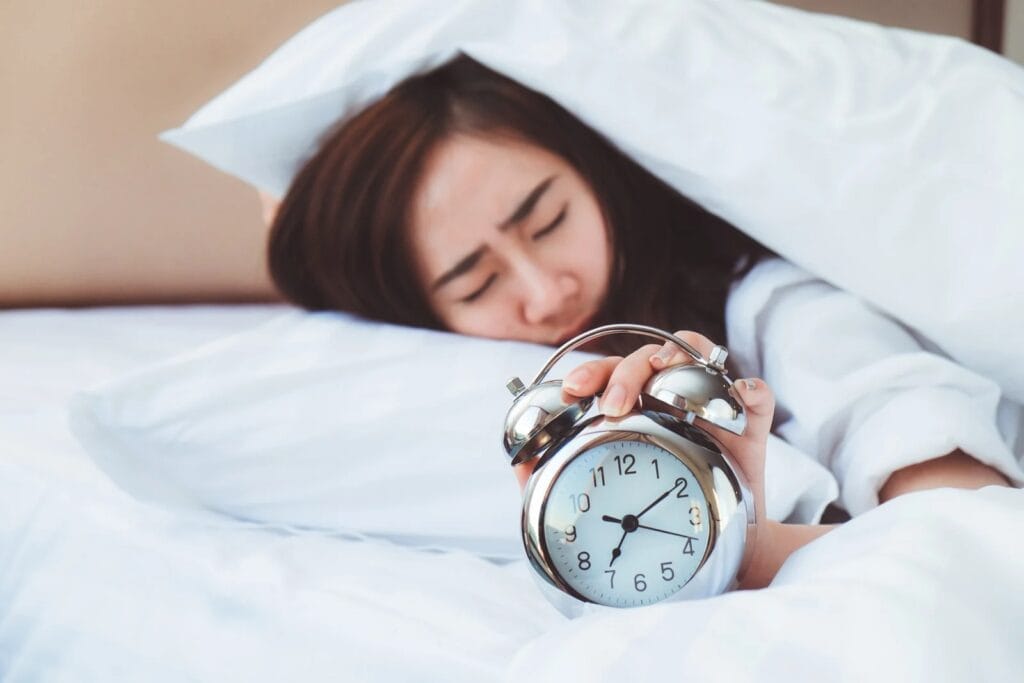Sleep hacks are key with pulling late-night clubbing sessions, running to 9 a.m. lectures, juggling assignments, and extra studying sessions, it’s no secret that student life is pretty much a balancing act. Somewhere between the caffeine-fuelled library sessions and seminar reading, sleep usually takes a hit.
Here’s a big secret: sleep isn’t just “nice to have”, it’s essential for doing well in university, staying healthy, and maintaining your mental health. Without good sleep, even the best students can fall apart.
If you’re tired of stumbling through lectures, relying on energy drinks like they’re oxygen, or spending your entire student loan on Starbucks, then you’re in the right place. Here are some practical and realistic sleep hacks that every student should know, because you don’t have to have a perfect sleep routine, just a manageable one.
Why should students prioritise sleep?

Think about the last time you stayed up all night. Okay, maybe you did cram in all of the content needed for that seminar or that exam, but the next day, how did you feel? Foggy brain? No focus? Heavy eyelids?
Here’s what good sleep actually does for you:
Good sleep boosts your memory retention, and it helps move what you’ve studied from your short-term memory to your long-term memory. That could easily help you achieve a few more marks in that exam you sat and missed out a key quote on because you couldn’t remember it!
A decent amount of sleep also lets you pay attention better (useful for your lectures), it reduces your stress and anxiety, making university and deadlines less overwhelming. Quality sleep also strengthens your immunity. Sleep deprivation weakens your immune system, so that little sniffle you have might hit you harder once you’re pulling all night benders during exam season.
10 tips for students to get better sleep
These aren’t perfect sleep hacks, but implementing some of these into your student life may help you significantly.
1. Stick to a consistent sleep schedule
Going to bed at wildly different times (something that I’m very guilty of) confuses your body’s internal clock. Try setting a fixed time that you go to sleep and wake up at, and stick to it, even on the weekend. Our bodies love routine, and in the long run, it will make falling asleep at night a lot easier, as well as making it easier to get out of bed in the morning because your body will be properly rested.
See our tips for maintaining a routine here.
2. Limit caffeine intake early in the day
That 4 p.m. coffee might feel like a lifesaver at the time, but caffeine lingers too long. A good rule of thumb to have is to avoid caffeine at least 6-8 hours before bedtime. If you go to bed about 10 p.m., try not to consume any caffeine past 2 p.m. if you can help it. It will make falling asleep easier. I find that when I’ve had caffeine too close to bedtime, I feel a lot more anxious, and then it’s impossible to fall asleep at a sensible time.
3. Make your room a sleep sanctuary
Make sure your room is fit for sleeping, you don’t have to buy any fancy, high-tech gadgets or anything, just little improvements.
- Keep your room cool (between 15℃ and 19℃)
- Use thick curtains or a sleep mask to block out as much light as possible.
- Use earplugs or a white noise app to block out external sounds.
- Ensure your bedding is clean and comfortable.
- Try not to work in your room when possible so your body associates it with sleep.
Your bedroom should make your body think “sleep” and not “Oh no, I have four assignments due in, let’s cram.”
4. Develop a wind-down routine
You can’t go to bed and fall asleep straight away if you’ve gone straight from analysing numbers. Try create an evening routine so that your brain knows it’s time to stop.
When you get home from your lectures, try having dinner at the same sort of time every night, and have a warm shower. Set aside time for reading (for fun, not your uni work), journal, and light exercise. Try to keep your phone out of it as much as possible too.
Apps like Calm or Medito can help with winding down. See here for our top apps for students’ mental health/sleep.
5. Reduce screen time before bed
Technology emits blue light that is designed to trick your brain into thinking that it’s still the middle of the day, which in turn, keeps you awake a lot longer.
Try turning off your phone at least half an hour before you want to sleep, try reading instead. If you absolutely have to use your phone right before falling asleep, use blue-light filters or night mode instead.
6. Try breathing exercises
On nights when your thoughts are bouncing around, try techniques like the 4-7-8 breathing exercise, where you inhale for 4 seconds, hold it for 7 seconds, then exhale for 8 seconds, which can really help your sleep.
Heathline have some other helpful sleep exercises which you can look at here.
Try focusing on your muscles and relax them one-by-one starting with your toes. That often works too!
7. Nap wisely
Naps are very, very tempting. Especially when you have hours and hours between lectures. Short naps are okay, aim for 20-40 minute naps, and don’t nap too late into the day! They can give you the energy you need, but if you nap for too long, or too late, it will mess with your sleep later on and you’ll end up being awake until silly o’clock in the morning because your brain won’t want to shut off.
8. Get morning sunlight
Light exposure in the morning helps reset your circadian rhythm. A 10-minute walk outside (without sunglasses) or opening windows first thing can make mornings easier and nights more restful.
9. Time your meals and fluids well
Being too full or too hungry makes sleep rough. Also, avoiding heavy meals right before bed helps. Drink steadily through the day, but taper off fluids as bedtime approaches to avoid middle-of-night trips to the bathroom.
10. Don’t force sleep if you’re struggling
If you’re lying awake for more than ~20 minutes, get up and do something calm; read a physical book, stretch, or listen to relaxing music. Try again when you feel sleepy. This avoids associating bed with frustration.
Obviously, deadlines, social stuff, and spontaneity happen. If you follow something like this most nights, though, your sleep stability (and mental clarity) will improve noticeably. Just try not to pull all-nighters too often, as it will impact you significantly in the long run.
Also, try not to sleep in too late at the weekend, you need to maintain a routine so you wake up for that 9 a.m. on Monday!
A few extra tips I’d include are don’t do any university work in bed, it’ll make your brain associate bed with work, so you won’t get sleepy. Try not to drink too much alcohol either, as that can harm your sleep quality.
If after a few weeks, sleep stops coming easily, you struggle to stay asleep, and sleep hacks don’t work, your sleep problems might be deeper than just having bad sleep habits. In that instance, please talk to your university’s well-being support, or call your G.P, as they can offer more support and get you a better solution so that you can sleep!
You don’t have to transform your life overnight. Start small: pick one or two hacks, maybe limiting screens before bed, or sticking to a consistent wake-up time. Give them a week or two and see how they feel. Not everything works for everyone; you might find some work better for you than others.
Sleep is your secret academic weapon. Treat it like the priority it deserves to be, and watch how much easier classes, deadlines, and even daily life feel.

Topic expertise: Student Cities, Cost of Living, Nightlife, Wellbeing, Accommodation
FAQs on Student Sleep Hacks
Good sleep improves memory, focus, and mood — all essential for study success. Without it, students are more likely to feel stressed, struggle to concentrate, and perform worse in exams and coursework.
Switch off screens an hour before bed, keep your room cool and dark, and try simple breathing or meditation exercises. Sticking to a regular bedtime routine helps signal to your body when it’s time to wind down.
Use earplugs, white noise apps, or noise-cancelling headphones to block out distractions. Rearranging your room so your bed isn’t against shared walls, and politely agreeing on quiet hours with flatmates, can also make a big difference.
Short naps of 20–30 minutes can boost alertness and productivity without leaving you groggy. Avoid napping too late in the day, as this can make it harder to fall asleep at night.
Regular exercise, cutting down on caffeine in the evening, and eating lighter dinners all help. Keeping your bedroom for sleep only — not studying — trains your brain to associate your bed with rest rather than stress.
Author
-
I'm a BA English Literature student at Chester University! I enjoy writing a mix of poetry, short fiction, and journalism– I'm a featured poet in a handful of anthologies.
View all posts


